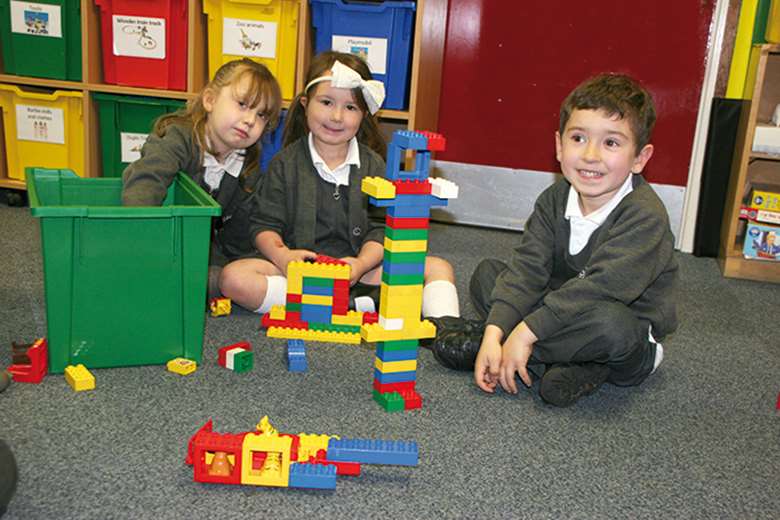Boosting attainment in reception
Derren Hayes
Tuesday, January 2, 2018
Education experts answer Ofsted criticism of the quality of education for disadvantaged young pupils.

Ofsted's Bold Beginnings report into the reception class experience of four- and five-year-olds has highlighted the attainment gap faced by disadvantaged children at the start of school.
The report found that around half of reception-age children from poorer backgrounds were failing to achieve expected levels of social, emotional, physical and communication development, as well as expected standards in maths and English.
The inspectorate said too many teachers lacked ambition for pupils, but head teachers interviewed for the report blamed the Early Years Foundation Stage (EYFS) profile for being too burdensome.
Ofsted's criticism follows concerns raised in October about the standard of support offered by early years settings in preparing children for school.
Here, three early education experts react to the report's findings and explain what can be done to improve education outcomes for young children.
School-nursery relationships key to success
By Purnima Tanuku, chief executive, National Day Nurseries Association
We were disappointed the report does not focus on the crucial relationship between schools and early years settings.
For children to thrive and succeed in their first year at school, they must experience a positive transition from their early years setting.
Good schools, where children do well in their reception class and first year, have strong relationships in place with their local childcare providers.
With good communication, they have a clear understanding of each child and share their knowledge prior to the child starting school.
This relationship should be in place as a matter of course otherwise all the good foundation work that a nursery does during a child's first few years is not used to benefit that child's future. This must not be a missed opportunity.
NDNA's Champions programme develops the maths and literacy skills of practitioners within a setting, supporting them to embed learning opportunities within the nursery for the children to enhance their own skills through play.
Ofsted has judged 95 per cent of nurseries to be "good" or "outstanding" at what they do. This success must be replicated in reception class, with teachers encouraging children to learn and develop through play and hands-on activities.
We do not support the view that once in school, pupils should be sitting rigidly at desks and expected to learn in a way that does not feel natural for them.
Reading focus in early years and reception
By James Bowen, director, NAHT Edge head teachers union
A recognition of the importance of the reception year is welcome - few would argue with Ofsted's assertion that "a good early education is the foundation for success".
The authors are right to talk about the importance of developing early literacy and placing a strong focus on reading in reception classes.
Early years practitioners will be pleased to see the report highlight the importance of children listening to stories, the use of role play to develop language and how learning nursery rhymes can help develop vital early literacy skills.
However, there are two key aspects which cause concern.
First, is the report's use of EYFS profile data to draw conclusions about the effectiveness of provision in the reception year. We need to remember that this data tells us just as much about a child's pre-school experience as it does their experience of the reception year.
Second, this report appears to almost recommend a particular method or style of teaching. It is hard to see how support for "direct" teaching and the use of "schemes" fits with Ofsted's stance of having no preferred style of teaching.
Learning through play is the best way
By Neil Leitch, chief executive, Pre-school Learning Alliance
Among other suggestions, this Ofsted report advises that the teaching of reading, including systematic synthetic phonics, should be the "core purpose" of reception, and that children should be "taught correct pencil grip and how to sit correctly at a table".
Providers could be forgiven for thinking that it should by now be well established that a formal approach to early education, and focusing on narrow disciplines like literacy and numeracy, is an incredibly flawed, short-sighted and potentially damaging approach to early learning.
There is a better way. Many reception classes are already excelling at delivering the learning through play championed by the EYFS profile. It is the principles of this framework that should inform practice in reception - not, as this Ofsted report suggests, the key stage one curriculum.
Research supports this argument, and those working in the early years and reception shouldn't feel pressured into refocusing learning on exam preparedness or literacy and numeracy alone. Instead, they should be encouraged to continue delivering child-focused, age-appropriate quality early years education that encompasses broader skills such as physical, personal, social and emotional development to build a foundation on which children can build for a life-long love of learning.




